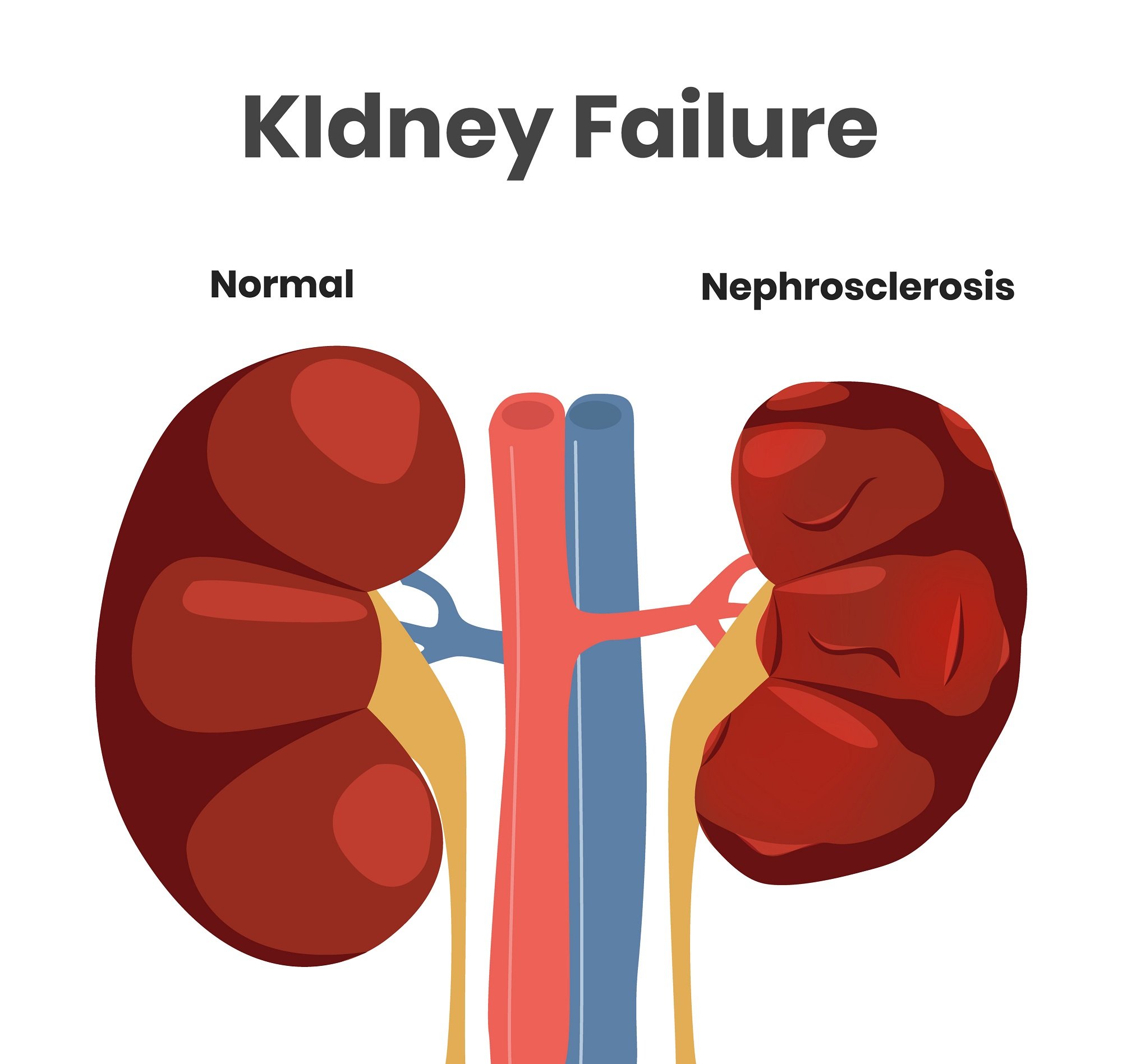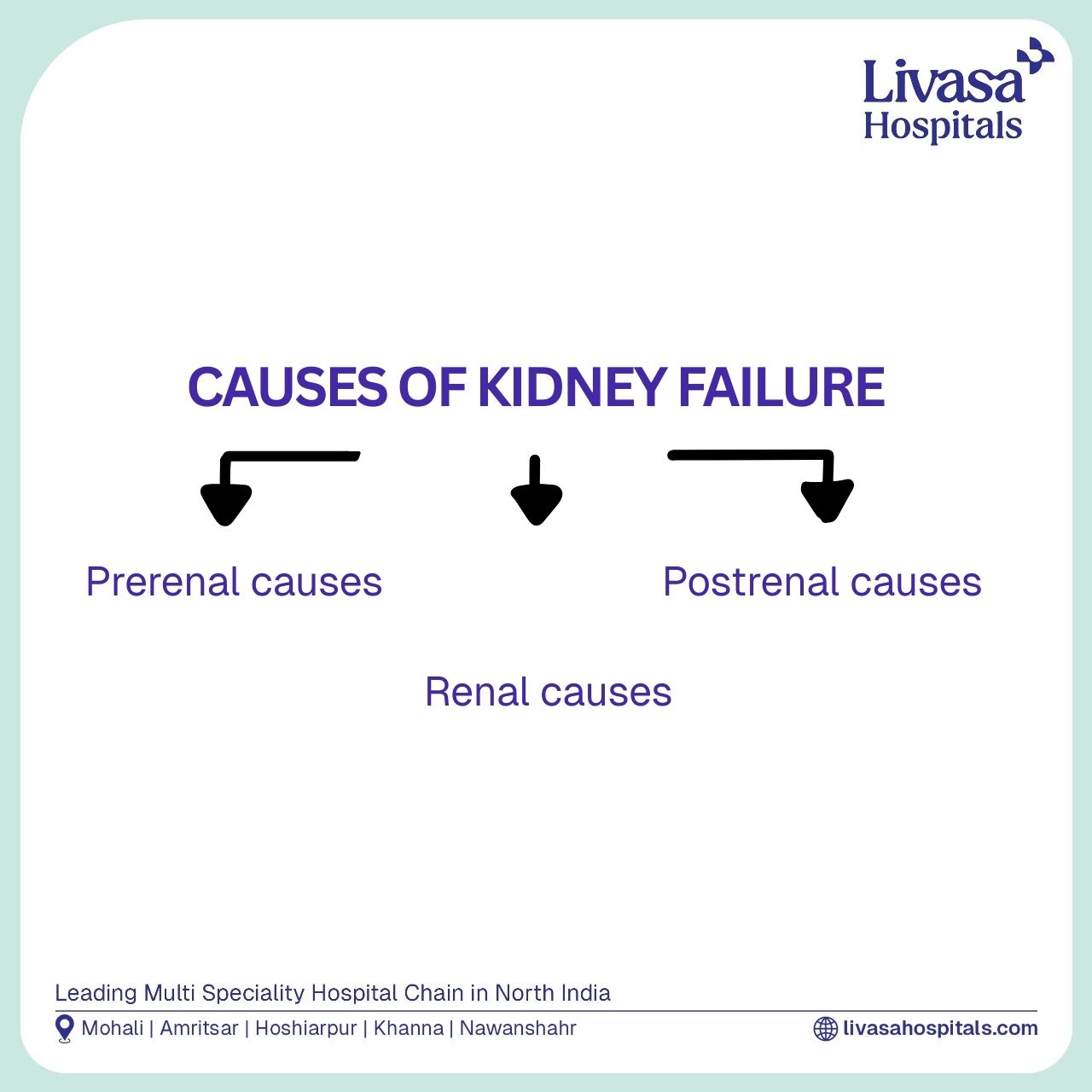19 Dec 2025
Age Specific Related to Psoriasis in Amritsar


Dr. Raka Kaushal
22 May 2025
Call +91 80788 80788 to request an appointment.
Kidney failure is a critical global health issue affecting millions of individuals each year. The kidneys play a crucial role in filtering waste products from the blood, regulating electrolytes, and maintaining overall fluid balance within the body. When they fail to function properly, the consequences can be severe. Recognizing kidney failure warning signs is essential for timely intervention and potential recovery. In this post, we will explore the symptoms of kidney failure, discuss treatment options, and provide insight on when to seek medical advice from nephrology specialists in Punjab, particularly at Livasa Hospitals.
Kidney failure, also known as renal failure, occurs when the kidneys can no longer effectively filter waste from the blood. This condition can be categorized into two main types: acute kidney failure, which develops suddenly, often in response to injury or illness, and chronic kidney failure, which occurs gradually over time, usually due to underlying health problems like diabetes or hypertension. Each type presents unique challenges concerning diagnosis and treatment.
According to the World Health Organization (WHO), chronic kidney disease affects approximately 10% of the global population. In India, the figures are equally alarming with a significant number of people at risk, mainly in regions such as Punjab. Understanding the symptoms and taking early action can considerably improve treatment outcomes.
Kidney failure can arise from various causes, which can broadly be classified into three categories: prerenal, renal, and postrenal conditions. Understanding these causes can aid in recognizing potential risk factors and symptoms of kidney failure.

Recognizing the early signs of kidney failure is crucial for prompt diagnosis and treatment. Below are common symptoms to watch for:
In addition to the early signs, individuals must remain vigilant for more advanced symptoms. These include:
Kidney infections (pyelonephritis) can also occur and may mimic or compound symptoms of kidney failure. It is essential to identify these symptoms, which include:
Diagnosing kidney failure involves various tests and evaluations performed by nephrology experts. Key evaluation methods include:
Treatment for kidney failure largely depends on its cause and severity. Options typically include:
| Treatment Type | Benefits | Recovery Time |
|---|---|---|
| Dialysis | Removes toxins from the blood | Regular sessions needed |
| Kidney Transplant | Potential for normal kidney function | Several weeks post-surgery |
While some risk factors for kidney failure cannot be changed, others can be managed with lifestyle changes. Consider the following preventative measures:
Recognizing the warning signs of kidney failure is vital for early intervention and preserving kidney function. Being aware of the symptoms, understanding the causes, and adhering to preventative measures can significantly enhance kidney health. If you or someone you know is experiencing any of the issues discussed, we encourage you to seek professional medical advice from nephrology experts at Livasa Hospitals in Punjab. Early detection and proactive management can make all the difference.
Contact Us at +91 80788 80788 or book an appointment to discuss your kidney health with our specialists.
Early detection saves lives. Book an appointment at Livasa Hospitals today to discuss nephrology treatment in Punjab.
+91 80788 80788
Livasa Healthcare Group Corporate Office,Phase-8, Industrial Area, Sector 73, Sahibzada Ajit Singh Nagar, Punjab 160071
livasacare@livasahospitals.in
| Mohali | +91-99888 23456 |
| Amritsar | +91-99887 49494 |
| Hoshiarpur | +91-99883 35353 |
| Nawanshahr | +91-75081 82337 |
| Khanna | +91-98888 05394 |